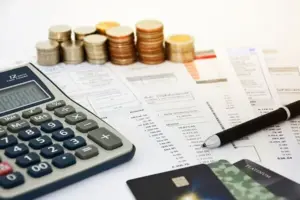The Burden of Debt Can Feel Overwhelming
Being in debt with no money to spare can feel like you’re trapped in a never-ending cycle. The stress, sleepless nights, and constant worry about how to make ends meet can take an emotional and mental toll. If you’re wondering how to regain control, know that you’re not alone, and there is a way forward. Taking it one step at a time, with clear strategies, can help you move toward financial freedom.
Prioritize Your Debts
With debt piling up and no extra funds, it’s essential to prioritize your obligations. Start by making a list of all your debts, noting the balances, interest rates, and minimum payments. High-interest debts, such as credit cards or payday loans, should take priority. Focusing on these first will prevent them from growing even faster, saving you money in the long run. Paying minimums on other debts while targeting the highest-interest one can help you make progress without spreading yourself too thin.
Create a Bare-Bones Budget
When money is tight, every dollar counts. A bare-bones budget focuses only on absolute necessities—shelter, food, utilities, and transportation. Eliminate or drastically reduce unnecessary expenses like dining out, streaming subscriptions, and impulse shopping. While it may be uncomfortable in the short term, redirecting every spare cent toward paying off debt can have a lasting positive impact on your financial stability.
Find Ways to Increase Your Income
If your budget can’t free up enough to cover your debts, increasing your income is the next step. Look into side gigs, part-time work, or freelance opportunities that fit your skills and schedule. Whether it’s delivering food for a local app, offering online tutoring services, or selling unwanted items around your house, even a small, steady stream of extra income can make a difference in chipping away at your debt.
Seek Professional Help
Credit counseling agencies or non-profit organizations can be valuable allies in your fight against debt. Many of these organizations offer free or low-cost services, such as creating a personalized debt repayment plan or negotiating lower interest rates on your behalf. Be cautious to avoid debt relief scams—stick to trusted, accredited organizations with positive reviews.
Consider Debt Negotiation or Settlement
Debt negotiation and settlement may be viable options if you’re struggling to keep up with payments. Contacting your creditors directly to explain your situation can lead to reduced balances, waived fees, or extended payment terms. Another option is working with a reputable debt settlement company, though this should be a last resort. While these options affect your credit score, they might be necessary to move forward and rebuild.
Invest in Financial Education and New Habits
Getting out of debt is about more than finding short-term solutions—it’s about creating sustainable financial habits. Familiarize yourself with financial literacy resources to learn effective saving, spending, and investing strategies. Building awareness around where your money goes and identifying spending triggers can help prevent future debt. The road to financial freedom starts with consistent, educated decision-making.
Celebrate Small Victories to Stay Motivated
The debt repayment process can feel slow and challenging, but celebrating small milestones keeps you motivated. Every time you pay off a bill or meet a financial goal, take a moment to appreciate how far you’ve come. These celebrations don’t have to be extravagant—treating yourself to a homemade meal or watching your favorite movie can make the process feel rewarding.
FAQs
What if I have no money to start paying off debt?
Start small, even if you can only pay the minimum balance on your debts. Use free resources, such as non-profit credit counselors, to explore additional solutions.
How long will it take to get out of debt?
The timeline varies depending on the amount you owe and your repayment strategy. Consistency and commitment play vital roles in speeding up the process.
Should I use a debt consolidation loan?
A consolidation loan can be helpful if it offers a lower interest rate than your existing debts. However, make sure you can afford the monthly payments before committing.




